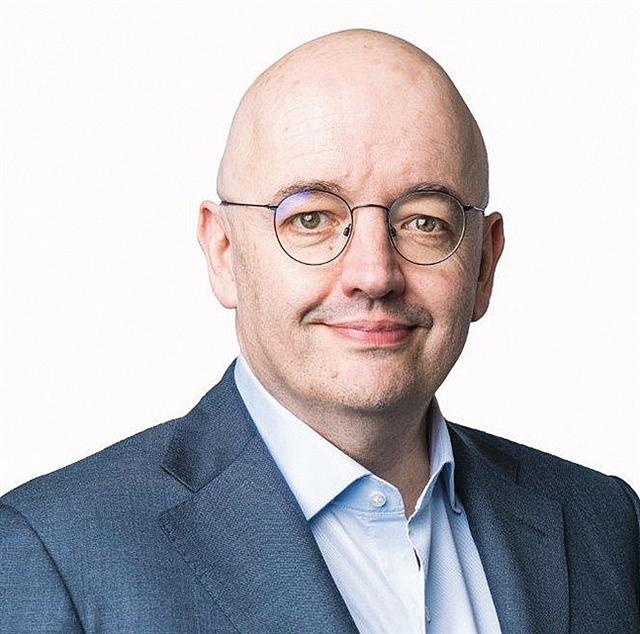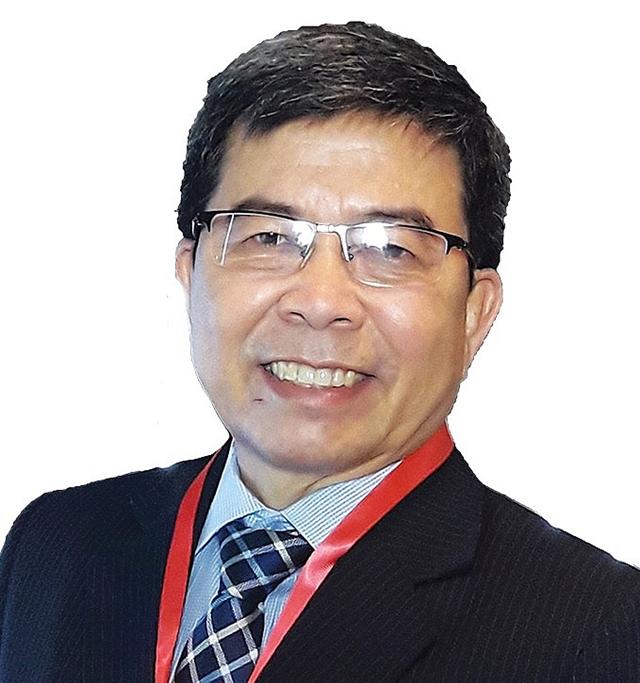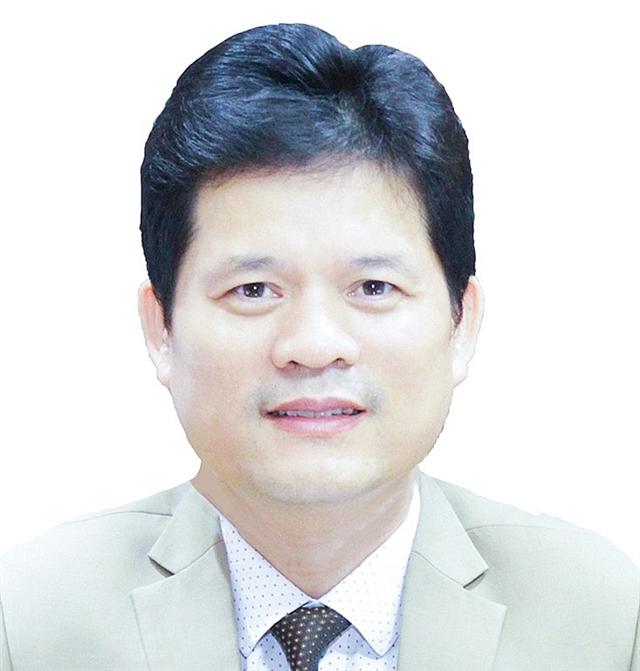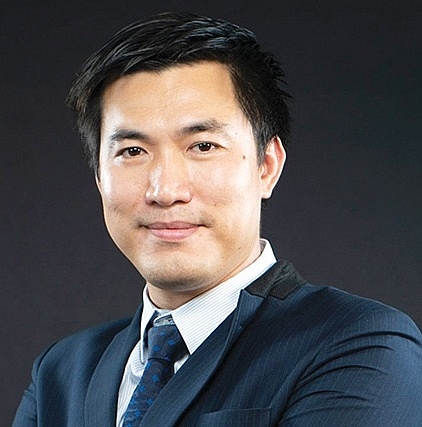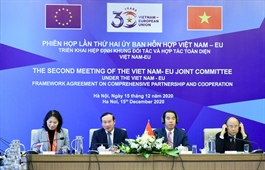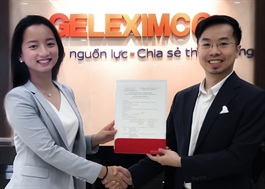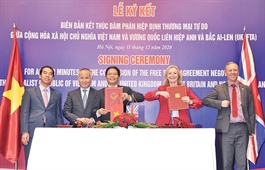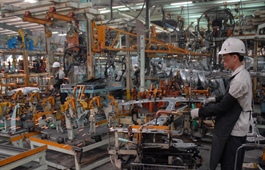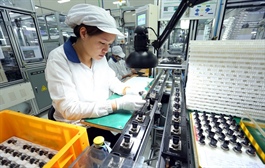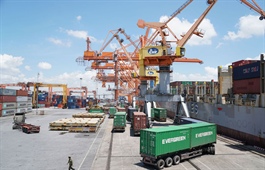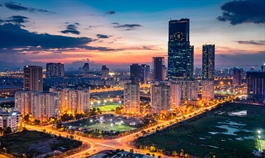Long way to go in Vietnam’s sustainability goal journey
Long way to go in Vietnam’s sustainability goal journey

By Bui Thu Thuy-Deputy director general Ministry of Planning and Investment’s Enterprise Development Agency
|
This year marks five years since all countries including Vietnam committed to implement the United Nations’ 2030 Agenda for Sustainable Development, as well as three years since Vietnam approved the National Action Plan to implement the 2030 Agenda for Sustainable Development Goals (SDGs).
Of these, the government directed drastically towards SDG implementation by recently issuing Resolution No.136/NQ-CP on Sustainable Development through 2030, detailing Vietnam’s 17 SDGs, as well as previously issuing Directive No.13/CT-TTg in 2019 on Sustainable Development. They all confirm the strong commitment of Vietnam in implementing SDGs by 2030.
The budget for environmental protection has already been allocated at around 1 per cent of total state budget expenditure, which will be adjusted to increase in line with economic growth. Besides that, the State Bank of Vietnam also issued policies and decisions related to promoting green credit growth and environmental social risks credit granting, and an action plan for the banking sector.
Thanks to these, the number of businesses that have already applied for green credit has increased year by year. As of the first quarter of 2019, as many as 20 credit organisations providing green credit loans reported total debts at VND242 trillion ($10.5 billion), up 2 per cent on-year. Of this, VND188 trillion ($8.17 billion) was mid- and long-term loans, and VND54 trillion ($2.3 billion) were short-term ones. Most borrowers are specialising in agriculture, sustainable urban management, sustainable forestry, and renewable energy.
In fact, there will be no sustainable economy without a sustainable business community. Corporate social responsibility generates benefits not only for businesses, but also for society. The development should be attached with sustainability, and business should be responsible.
However, only around 100,000 of 750,000 enterprises in Vietnam understand and implement sustainable development, and only 2,000 are members of a sustainable development business community. Indeed, awareness of this in businesses is still limited due to poor governance and lack of strategic viewpoints.
Business models like production and services always discharge energy or materials into the environment. Although waste and additive products still can be used, recycling costs are too expensive, so firms often dispose waste without considering the impacts to the environment or society.
In addition to some that have knowledge on sustainable development, most do not predict what will happen in the future, so there are not many changes from traditional business. The poor governance and the lack of strategy are big challenges for small- and medium-sized enterprises to develop sustainably.
Capital is also a challenge for the private sector. It takes a long time to see the benefits from investment into sustainability like renewable energy, high-tech waste treatment systems, and environmentally-friendly or recycled materials. Thereby, many of the smaller enterprises do not have enough funds to implement long-term goals like research and development, or sustainability.
Vietnam has no database on the companies which apply sustainable business models or are adapting to climate change. So clients, investors, and partners have no official information in order to select a trustable partner. The lack of reputable organisations is a barrier for sustainable products and businesses to spread in a popular fashion.
In order to encourage the development of sustainable corporates, it is necessary to evolve an ecosystem supporting businesses to change their models, like providing a sustainable chain of materials, production lines, consumption, reuse, and repair, which all are environmentally friendly.
As noted by Deputy Prime Minister Vu Duc Dam, we should apply the experience in successfully fighting against COVID-19 so that people have knowledge and gain a responsibility for themselves, their families, for society, and for the world. Sustainable development can succeed if everyone and every business raises their awareness.
|
Outcomes of Vietnam in implementing SDGs - The rate of poor households (in new multi-dimensional method) reduced by 1.53 per cent during 2016-2019. - The rate of under-five mortality decreased from 2.21 per cent in 2015 to 2.1 per cent in 2019. - The coverage of health insurance raised to 90 per cent in 2019 from 76.4 per cent in 2015. - The ratio of five-year-old children going to kindergarten was 99.9 per cent in 2019 and ratio of pupils who are certificated to graduate primary school was 99.6 per cent in 2019. - The rate of female congresspeople (in the tenure 2016-2021) is 26.7 per cent. - The ratio of households using hygienic water sources in 2018 are 95.7 per cent. - More than 99 per cent of all households are provided enough power in 2019. - The rate of population using the internet hit 65.9 per cent (equaling 64 million people) in 2019. - GDP growth in 2016-2019 was high at 6.8 per cent on average, while the increase of productivity in the 2016-2019 period was 5.8 per cent. - Forestry coverage reached 41.89 per cent in 2019. |
|
Peter Bakker - CEO and chairman, World Business Council for Sustainable Development
Business leaders can unlock new market opportunities worth $5 trillion and generate about 230 million jobs in Asia by 2030. If we take a closer look at Vietnam, we can see that agriculture is a very important economic and social component accounted for 15 per cent of the national GDP. Our latest report on circular economy showed that the $7.7-trillion economy paves a great opportunity for business and a key element to fight against climate change, biodiversity loss, and resource scarcity. To that point, the Ministry of Finance is requiring listed companies to disclose information related to sustainable development, corporate responsibility for environment and society, and corporate governance in annual reports. It is promising that the adoption of the CSI is scaling up so rapidly, because sustainability must remain a priority. Do Thai Vuong - Vice president, Unilever Vietnam
The year marks an important milestone for Unilever as we celebrate our 10th anniversary of implementing our Sustainable Living Plan in Vietnam. We are also honoured to lead the charge in building a circular economy model in plastic waste management this year with the Ministry of Natural Resources and Environment and pioneering companies with great commitments to protect the environment like SCG. At Unilever, we have two main assets, people and long-lasting brands that are associated with the lives of many people around the world and in Vietnam. Investing in human resources is thus our key strategy. At the start of the pandemic, all Unilever employees trained and encouraged to apply flexible working models and could work from anywhere. Therefore, during the social distancing periods, Unilever has still worked effectively, even increasing production. Holly Bostock - Director, Corporate Affairs, HEINEKEN Vietnam
Being in the top three most sustainable companies in Vietnam for five years in a row is a great honour for HEINEKEN Vietnam. With the guiding role of the government and VBCSD-VCCI, and the joint efforts of the business community, we believe that together we can all take a step further to grow with Vietnam. For us, that means contributing positively to the prosperity, communities, and environment of Vietnam. At HEINEKEN Vietnam, we believe pursuing sustainability is the right thing to do not only for our business, but for the country we operate in. We have been embedding our sustainability agenda called ‘Brewing a Better Vietnam’ in our business for many years and set our ambitious targets to achieve zero waste and use entirely renewable energy by 2025. An Do - Principal, Patamar Capital
We are looking for environmental projects which could create a huge impact on society. However, to date, most environmental solutions on the market have been far from efficient, a common problem globally. We used to pour capital into a $36-million plastic waste treatment factory in the Netherlands with a plan of multiplying the number of establishments in European countries. Contrary to our expectations, the factories could only handle about 0.04 per cent of plastic manufacturing output in the area annually. Over the years, plenty of environmental projects have been sent to us here in Vietnam, but the number of projects in which we foresee growth potential is tiny. We hope operators of projects can determine the actual problem needing to be solved, and then the long-term vision of their solutions. Bui Thi Mai Hien - Director, Human Resources, Bao Viet Securities
This year marks the third consecutive one that Bao Viet Securities has been honoured in the Top 100 Sustainable Companies. As one of the major brokerages in Vietnam, we have made significant commitments to foster sustainable development. In addition to achieving the sustainable development goals in economic growth, we also put great efforts on developing social and environmental benefits. Last year, Bao Viet Securities’ profit after tax reached VND135.5 billion ($5.9 million), completing 105.9 per cent of the whole year’s target. Good business performance makes an important contribution to our goals to fulfil commitments to employees. Sustainable development orientation has been highlighted at the early stage of our journey, and has been built up year by year, thereby helping us to weather the storms. Nguyen Quoc Viet - Managing director, Dau Tieng Rubber Corporation
Sustainable development has been for years deemed the company’s most important mission. It attests to our commitment to customers, employees, and society. To us, this is one of the most important factors to keep the company’s image and values. Our company has been taking part in a raft of programmes to solidify sustainable development footprints. In 2011, Dau Tieng Rubber was awarded an internationally-recognised Forest Stewardship Council certificate for our 4,000-hectare rubber fields, which have recently been augmented to double that size. Most of the company’s products go to export and have built up a well-established reputation among foreign clients. Labourers are our most valued asset. Despite implications of COVID-19, our company has always tried to increase income for labourers through amid tough competition for quality manpower in the rubber industry. Nguyen Van Khoi - Chairman, Quang Khoi General Hospital
At Quang Khoi General Hospital, we always pay due attention to sustainable development. As a private hospital, we are striving to increase service quality, thus increasing patients’ satisfaction and confidence. Strengthening local and international cooperation, training and technology exchanges and transfer have been significantly contributing to this. We have also launched a number of charitable programmes in an effort to bring better life to the needy. The hospital strictly abides by the standards on environmental protection, emissions reduction, and energy saving. Specifically, we maximally reduce discharge of medical waste and treat wastewater in an appropriate manner – and we build a detailed process to strictly supervise this. For instance, we replace plastic bottles with glass, and use energy-efficient equipment, among other actions. Le Anh - Vice president, Duy Tan Plastics JSC
As one of the leading Vietnamese companies in the plastic landscape, Duy Tan not only aims to create recycled plastic products, but also recyclable plastic with high quality. Contributing to the greening of our home country by curbing plastic waste is our obligation. Currently, we are preparing for a new factory to fulfil our sustainable development goals towards a better Vietnam, which aligns with the Vietnamese government’s national strategy on green growth. Our factory, with planned capacity of up to 100,000 tonnes per year, is the first in Vietnam to apply the Bottles to Bottles process, which is to recycle used plastic bottles into plastic raw materials for the next production of plastic bottles. We believe in Vietnam’s immense potential for recycling plastic, because many multinationals such as Unilever have set their goals of using recycled plastic in their packages. Nguyen Duy Ninh - Project director, Ho Guom Group
This year is the first time Ho Guom Group has joined the Corporate Sustainability programme and is happy to be named in the Top 100 Sustainable Compamies in the country. An award like this inspires Vietnamese businesses to embrace the sustainable development journey. Our company is labour-intensive with around 6,000 labourers, most of them women. All plants under Ho Guom Group are equipped with a state-of-the-art waste-burning system. Wherever we put our investment, we strive to ensure jobs and incomes for local people, helping turn many locations into bustling areas. Garment export is one of our core lines. US and EU markets account for more than 90 per cent of our total revenues in the segment. Good preparations, such as in stocking materials pre-pandemic, has helped us alleviate its impacts to keep stable production. Tran Thi Ha Binh - Senior director, Human Resources, Bowker Garments Co., Ltd.
Although this year has witnessed a lot of changes and difficulties, we are still able to maintain our workforce, with none of our employees taking any mandatory day off. In addition, the company continues to invest in the installation of more solar energy systems and tries to share a part with the community through social activities such as providing medical masks, hand sanitisers, and supporting people in Hue and Quang Tri experiencing natural disasters. In addition to producing garments, we shifted to face masks and moved from outdoor to indoor sports products and casual clothes. Production plummeted but from July, the company returned to growth and we are now striving to recover to maintain the same growth rate as last year. With the current pandemic situation, we are trying to stabilise production and open about 10 more lines to meet production needs and also employ about 500-1000 more workers in the first three months of 2021. |


